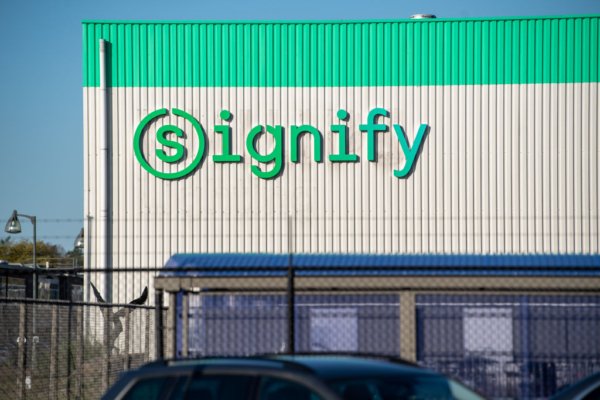The global leading lighting manufacturer Signify’s CEO, Eric Rondolat, expressed the company’s consideration of establishing production bases outside China to potentially relocate some manufacturing operations in response to the impact of the new tariffs imposed by the United States.
Signify is the new company name for Philips Lighting. According to its official website, the company is a global leader in professional lighting, home lighting, and internet lighting industries.
After the announcement of Signify’s third-quarter earnings, Rondolat mentioned during a conference call with analysts that the company is contemplating establishing production bases in India, Indonesia, and restructuring its existing operations in Mexico.
Republican presidential candidate and former U.S. President Trump proposed imposing tariffs of up to 60% on products imported from China if re-elected in the upcoming U.S. election. However, the majority of Signify’s products are currently manufactured in China.
For over two decades, the United States has been China’s largest export market, with exports reaching $536 billion in 2022. Levying a 60% tariff on Chinese goods could significantly hinder China’s exports to the U.S.
“We have Plan A, Plan B, Plan C, depending on the direction of political decisions,” said Rondolat.
Between 2017 and 2018, Signify was already affected by the tariffs imposed by the Trump administration on Chinese goods. Around 40% of the company’s sales come from the Americas. Rondolat estimated that tariffs would continue to be around 20% to 25% across the company’s entire business.
In response to high tariffs, the company considers sourcing and production in the U.S. or Mexico but will only do so for limited products in their portfolio as Chinese production remains more cost-effective.
“The situation could change now, and we are prepared,” he said. “We are well-positioned, potentially better than the first time additional tariffs were imposed.”
He estimated that the company and the broader industry would be able to respond to new tariffs within 6-9 months.
Signify’s financial report revealed that despite weak economic conditions in Europe and China, the company’s profit margin has recovered after cost-cutting measures. The company’s stock price rose by 9.4% on Friday.
During his first presidential term, Trump imposed punitive tariffs ranging from 7.5% to 25% on approximately $360 billion of Chinese goods due to dissatisfaction with China’s long-standing unfair trade practices. In retaliation, China imposed tariffs on some U.S. imports. After Biden took office, he largely retained the tariffs implemented during the Trump era.

